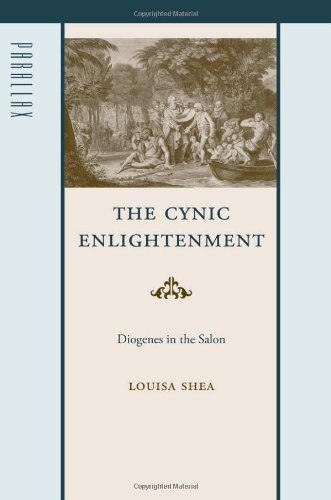

Most ebook files are in PDF format, so you can easily read them using various software such as Foxit Reader or directly on the Google Chrome browser.
Some ebook files are released by publishers in other formats such as .awz, .mobi, .epub, .fb2, etc. You may need to install specific software to read these formats on mobile/PC, such as Calibre.
Please read the tutorial at this link: https://ebookbell.com/faq
We offer FREE conversion to the popular formats you request; however, this may take some time. Therefore, right after payment, please email us, and we will try to provide the service as quickly as possible.
For some exceptional file formats or broken links (if any), please refrain from opening any disputes. Instead, email us first, and we will try to assist within a maximum of 6 hours.
EbookBell Team

0.0
0 reviewsThis original study reveals the importance of ancient Cynicism in defining the Enlightenment and its legacy.
Louisa Shea explores modernity's debt to Cynicism by examining the works of thinkers who turned to the ancient Cynics as a model for reinventing philosophy and dared to imagine an alliance between a socially engaged Enlightenment and the least respectable of early Greek philosophies. While Cynicism has always resided on the fringes of philosophy, Shea argues, it remained a vital touchstone for writers committed to social change and helped define the emerging figure of the public intellectual in the 18th century.
Shea's study brings to light the rich legacy of ancient Cynicism in modern intellectual, philosophical, and literary life, both in the 18th-century works of Diderot, Rousseau, Wieland, and Sade, and in recent writings by Michel Foucault and Peter Sloterdijk.
Featuring an important new perspective on both Enlightenment thought and its current scholarly reception, The Cynic Enlightenment will interest students and scholars of the Enlightenment and its intellectual legacy, 18th-century studies, literature, and philosophy.